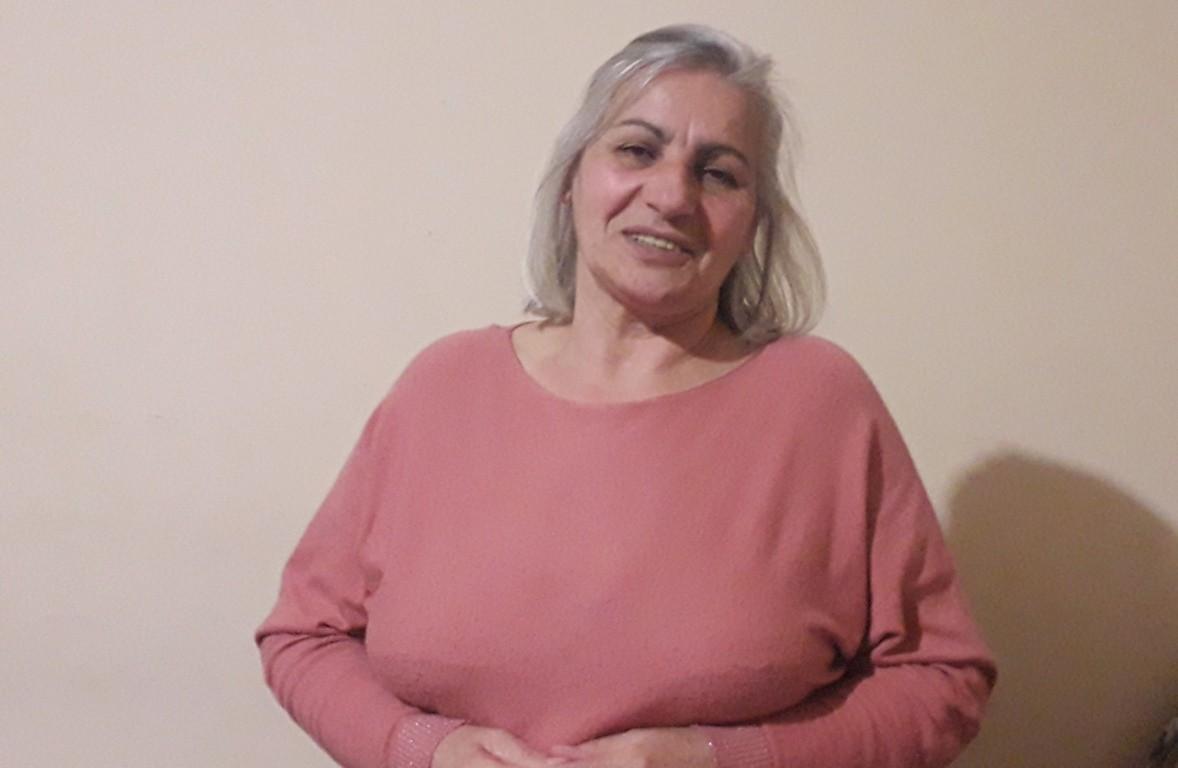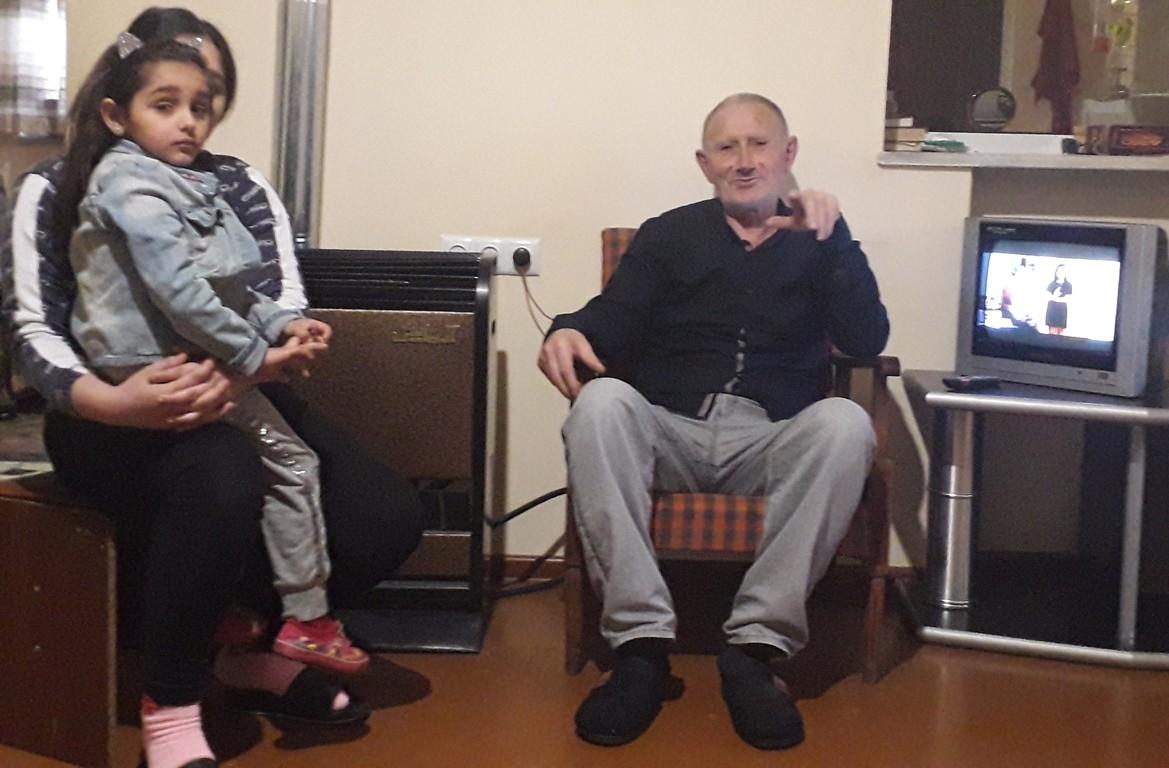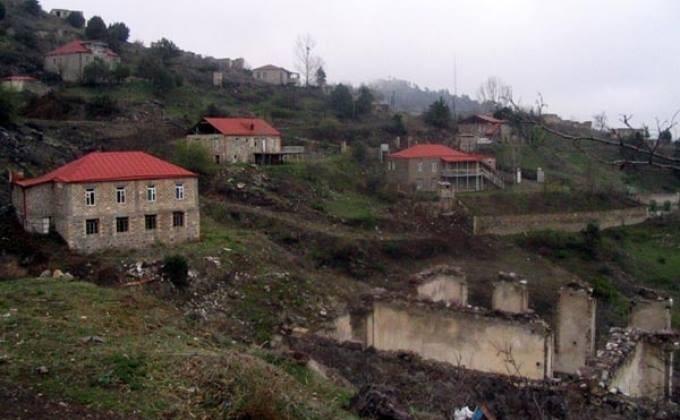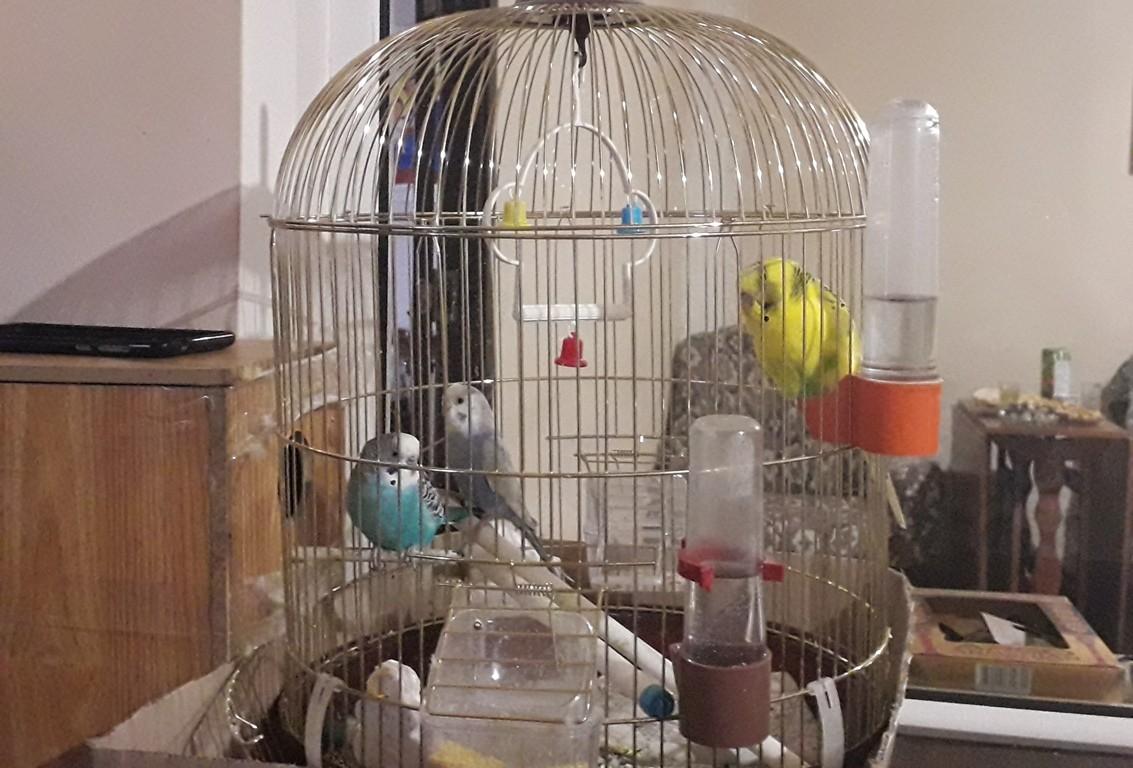
25 Years Later: Artsakh War Forces Babayan Family to Return to Armenia Emptyhanded
Rita and Maxim Babayan left their village home in Garni, in Armenia, and resettled in the Kashatagh District of Artsakh twenty-five years ago.
Last year’s war in Karabakh forced them to return, emptyhanded and with no home awaiting them.
“We brought with us a long credit history, a suitcase of clothes and our parrots,” says Rita Babayan, trying to dispel the sadness in her eyes.
She says it never occurred to her that they’d be leaving Artsakh for good.
"We went with a family of five and came back with three families," said Maxim, Babayan.
Their three children grew up in Kashatagh and started families of their own.
The sixteen people forced to flee Artsakh were scattered here and there in the homes of relatives.
Rita and Maxim have found a rented apartment in the village of Jrvezh and moved there with the family of one of the sons. Their only property are the colorful parrots they take with them from house to house.
Mrs. Babayan recalls with admiration the village of Ghochants in Kashatagh, which was their first destination in Artsakh.
"We lived a fairytale life in Ghochants. It was an interesting, adventurous life. It is a typical Armenian village, covered with greenery all year round. It has wonderful nature, surrounded by lush forests. There are wonderful churches in the village. It was quiet there. The air was clean, the crops were spotless, and on our way back from Berdzor we would collect walnuts and hazelnuts in sacks.”
"We had a 2,000-square-meter apple orchard, I did not use any medicine," said Maxim.
The couple was the seventh Armenian family to settle in Ghochants.
Mrs. Babayan says they were well received, otherwise no one could have endured the difficult financial situation and living conditions.
“We slightly improved the house allotted to us and made it livable. For the first four years there was no electricity in the village. We lived by candlelight. A thin wire was then installed in everyone's house with a light bulb,” says Mrs. Babayan, who worked as a teacher.
Ghochants had 27 families, a large number for the area. The village had just been formed after the 1990s Artsakh War and families from all over Armenia moved there. Some wanted to escape their past lives, seeking a new start. Some wanted to be a part of the new Artsakh experiment.
“We lived a full community life. The houses were far from each other. To communicate you either had to cross a gorge or climb a mountain. But the distance did not stop us having good neighborly relations,” Ms. Babayan says.
She says that when they moved to Kashatagh, their little boy was four. Their eldest son left for military service a month later. Mrs. Babayan recalls that the villagers gathered for a farewell celebration. One neighbor killed a wild boar, another caught some fish. They all brought flour from their homes, baked lavash and gata, and said goodbye to their son.
Ghochants lies twenty-one kilometers from Berdzor. The road twists and turns through gorges and valleys.
Once a week, a truck would make the trip. Those wishing to go to Berdzor, the nearest town, would hitch a ride.
Mrs. Babayan says she and the other villagers pitched in, renovated a building, and turned it into a school.
"One brought the door, the other the window, another bought paint, and so on. The number of students was growing. We had up to 27 students in the school. Any of the residents who had some type of education could teach something. We agreed on who would teach what. We went to Berdzor, introduced ourselves to the person in charge of regional education and returned with our positions confirmed. That's how we set up our school,” she says.
Mrs. Babayan worked as a teacher for 23 years, her husband Maxim taught military training at the same school for 21 years.
In 2014, Rita and Maxim Babayan moved to Pakahan, another village in the Kashatagh. She says that the number of students in Ghochants had decreased again, forcing her to look for a new job. Upon learning that there was a teaching vacancy in the south of Kashatagh, in Pakahan, they moved there.
The school weas housed in a large, well-maintained building, where more than fifty students studied.
The family decided to finally settle in Pakahan. They got a bank loan to repair and expand their dilapidated house.
"Last year we grew 2.5 hectares of cucumbers. We hoped to repay the loan with that amount. We already had to harvest the cucumbers, and we were almost finishing the construction work when the war started,” says Maxim.
"It was October 3. I was making preserves and my husband, wine, when we were ordered to leave the village. We could see fire and smoke from our village and heard gunshots. But the fighting did not reach our area. We left the food on the table and left because we thought we would return," says Mrs. Babayan.
"We only took our passports, a suitcase of clothes, the parrots and left the village in a neighbor's car. My neighbor also took a suitcase with her little cat,” Babayan.
They went to the village of Melikashen in Berdzor, where their daughter's family lived, and stayed there until October 27, hoping to return.
They returned empty-handed to Armenia.
"We were not allowed to go and get our furniture. We left behind what we had created for 25 years: a house, newly bought furniture, cars, even family photos and documents," says Mrs. Babayan.
Despite their own predicament, the couple mainly regrets the loss of so many young people.
The displaced Babayan couple, who lost their belongings, emphasize that they only regret the lives of young people, nothing else comes to mind.
The family spent the best years of their lives, 25 years, in Kashatagh. When asked what she misses the most, Mrs. Babayan replies, "I only miss the memories."
"The first wedding in Ghochants was at my house. The first child was born at my house. All my joys and sorrows are linked to that village," says Maxim Babayan. “We love the village very much, but no matter what happens, I will not return there. People left their graves there."
 Videos
Videos Photos
Photos



Comments (1)
Write a comment